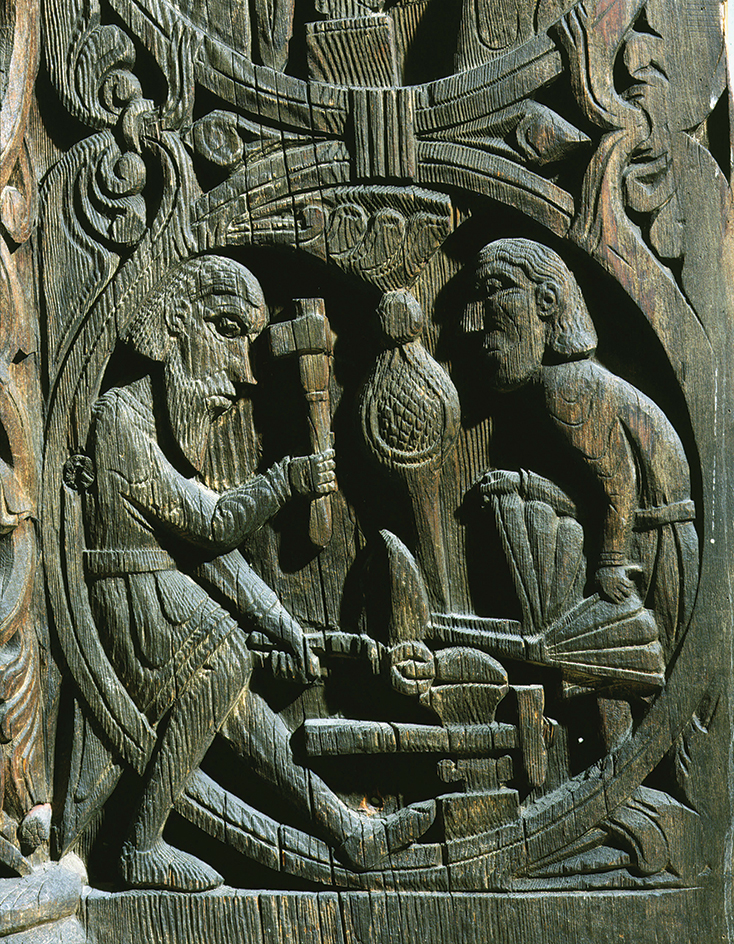Edda, << EHD uh, >> is a term that refers to two separate works of medieval Icelandic literature. The Poetic, or Elder, Edda is a collection of anonymous poems composed in the 1000’s and 1100’s. The Prose, or Younger, Edda is a textbook for poets that was written during the 1200’s by the Icelandic poet and historian Snorri Sturluson. Snorri’s work was the first to be called Edda, a name that may be related to an Icelandic word meaning song or poem. Later, the term was applied to the Elder Edda, too.
Twenty-four of the 38 poems in the Poetic Edda are heroic tales, many of them concerned with the exploits of the hero Sigurd (Siegfried in German). The remaining 14 poems contain mythological material, including accounts of the creation and end of the universe. The longest of these poems is The Sayings of the High One. It contains practical wisdom and reveals the moral attitudes of the people of medieval Scandinavia.

Snorri’s Prose Edda consists of a preface and three sections. The first section narrates myths about the Scandinavian deities. The second explores various features of poetic diction and exemplifies their use by narrating additional myths. The final section is a poem of 102 verses, each illustrating a different type of meter or stanza form.
